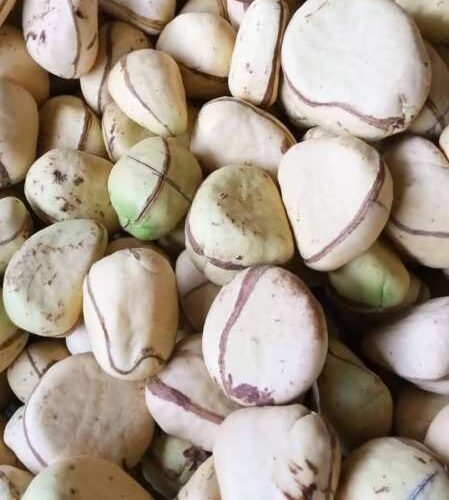What is White Kolanut? Why Buy It?
White kolanut, scientifically known as Cola acuminate and Cola nitida, is a variety of the kola nut that plays a significant cultural, economic, and medicinal role in several West African societies. Unlike its more commonly recognized red counterpart, the white kolanut is distinguished by its pale color and slightly milder taste. It grows on the kola tree, which thrives in tropical climates, particularly in West Africa. The nut is widely used in traditional ceremonies, social gatherings, and as a natural stimulant, similar to caffeine.
The white kolanut contains several bioactive compounds, including caffeine, theobromine, and tannins, which contribute to its stimulating effects. It is often chewed raw, with its bitter taste gradually giving way to a mild sweetness. The stimulant properties of the white kolanut make it popular among those seeking a natural energy boost. In addition to its stimulating effects, it is believed to have several health benefits, including improved digestion, enhanced mental alertness, and increased blood circulation.
Buying white kolanut offers several advantages. For one, it is a natural source of caffeine, which can serve as an alternative to coffee or energy drinks for those seeking a milder stimulant. Additionally, white kolanut is deeply embedded in cultural traditions, making it a meaningful purchase for those interested in African cultural practices or for use in traditional ceremonies. Moreover, the growing interest in natural and organic products has positioned white kolanut as a sought-after item in the global market for those looking to explore alternative, plant-based stimulants.
The rising global interest in white kolanut highlights its potential as both a cultural artifact and a natural stimulant. The increasing demand from both traditional markets in Africa and new markets in the Middle East, Europe, and North America underscores the kola nut’s versatility and enduring significance in global trade. As the market for natural products continues to grow, white kolanut is likely to remain a valuable commodity in international trade.
Top Producing/Exporting Countries of White Kolanut
White kolanut is primarily cultivated in West Africa, where the tropical climate and fertile soils provide ideal conditions for the kola tree to thrive. The top producing and exporting countries of white kolanut include Nigeria, Ghana, Ivory Coast, and Cameroon, which together dominate the global market.
Nigeria stands as the largest producer of white kolanut in the world. The country’s kola nut production is centered in the southwestern and southeastern regions, where the crop is not only an economic staple but also holds cultural and social significance. Nigeria’s large-scale production is driven by both domestic demand and a growing export market, particularly to other African countries and the Middle East.
Ghana is another major producer of white kolanut, with its cultivation concentrated in the country’s forest zones. In Ghana, white kolanut is traditionally used in social ceremonies and as a symbol of hospitality. The export of white kolanut from Ghana is steadily growing, with demand coming from neighboring countries as well as international markets interested in African traditional products.
Ivory Coast is also a significant player in the white kolanut market. The country’s kola nut production is integrated into its broader agricultural sector, which is one of the largest in West Africa. Ivory Coast exports a substantial portion of its kola nut production, particularly to Nigeria, where there is a high demand for kola nuts for cultural and commercial purposes.
Cameroon contributes to the global supply of white kolanut, though on a smaller scale compared to Nigeria and Ghana. The country’s production is primarily for domestic consumption, but there is a growing interest in expanding its export capacity to meet the rising international demand. Cameroon’s kola nut industry is part of a larger agricultural tradition, with the nut playing a role in both economic activities and local customs.
Top Importing Countries of White Kolanut
The global demand for white kolanut is driven by its cultural significance, stimulant properties, and increasing recognition as a natural product with potential health benefits. The top importing countries of white kolanut are predominantly in Africa and the Middle East, with some interest from markets in Europe and North America.
Nigeria itself is a significant importer of white kolanut, despite being the largest producer. This is due to the high domestic demand for kola nuts, especially in regions where it is used in cultural practices and as a stimulant. Nigeria imports kola nuts from neighboring countries like Ghana and Ivory Coast to supplement its domestic production, ensuring a steady supply for its population.
Saudi Arabia is one of the leading importers of white kolanut outside Africa. The kola nut is valued in Saudi Arabia for its stimulating properties and is often consumed during social gatherings. The nut’s cultural resonance with African traditions has made it a popular item in markets that cater to African expatriates and those interested in traditional African products.
United Arab Emirates (UAE) also imports a significant amount of white kolanut, largely driven by the country’s diverse population and the demand for traditional African products among expatriate communities. The kola nut is used in various traditional ceremonies and as a natural stimulant, appealing to those who prefer natural over synthetic products.
United States has seen a growing interest in white kolanut, particularly within communities that practice traditional African customs and among consumers seeking natural stimulants. The US imports white kolanut primarily for cultural markets and as an ingredient in certain niche products, including energy supplements and herbal remedies.
United Kingdom is another market where white kolanut is gaining traction. The UK imports kola nuts to cater to its African communities and for use in specialty products that capitalize on the growing trend of natural and organic products. The nut is also sold in ethnic grocery stores and used in cultural ceremonies among African diaspora communities.
International Price of White Kolanut Per Metric Ton
The unit price ($ per kg) of White Kolanut in the international market depends on a host of different factors including:
- The grade of the produce (usually the more the processing, the higher the price)
- The price of the raw material
- Age of the seeds (this can affect the price)
- Production levels in producing countries
- Economic conditions and the exchange rates between the currencies of the producing and importing countries.
- The quantity ordered (the greater the quantity, the cheaper you can get it per ton)
- Harvest season (it is more costly when it is out of harvest season).
- Weather conditions (some commodities are sensitive to weather conditions).
- Freight & haulage cost
- Percentage of markup
- Import duties, trade tariffs and trade agreements between countries
- Distance from the country of origin
- Technology/Infrastructure available in country of origin
- Relationship between the buyer and seller
That said, as at July 2024, White Kolanut costs between $4,000 and $6,000 per metric ton (1,000 kilograms) in the international market (i.e. $4/kg to $6/kg).
How To Safely Source for Your White Kolanut Produce
If you find the right export company, buying directly from them can make the purchase process easy and stress-free, when compared with doing the sourcing on your own. That said, there are few things to note when dealing with an export company in Nigeria or Africa. The specific requirements for Nigeria are listed below, but they mostly apply to other African countries:
- The exporting company must be registered with the Corporate Affairs Commission (CAC) to make sure the company is registered and permitted to carry out business operations.
- The export company must also be registered with the Nigerian Export Promotion Council (NEPC).
- The company must possess a domiciliary account to accept international payments.
The company should get all necessary export-related documentation done before the shipment leaves the port of origin. Some of the documents are:
- Certificate of origin
- Bill of lading
- Inspection Certificate (SGS, Cotecna, Bureau Veritas, Intertek, etc)
- Phytosanitary certificate
- Fumigation certificate
Where To Find Reliable Exporters
An important question that still needs to be answered is how to find White Kolanut exporters in Nigeria. You can use any of the methods listed below:
- Attend trade fairs
- Use search engines like Google, Yahoo, etc.
- Search for agents on Linkedln
- Sign up on trade platforms (e.g. Alibaba, Tradeford, Go4WorldBusiness)
- Neogric – Neogric is one of the reliable White Kolanut exporters in Nigeria. Neogric is rated among the best in the exporting business in Nigeria. The company is not limited to the exportation of White Kolanut alone but can export other agricultural produce ranging from perishables to dry seeds.
How To Pay For Your White Kolanut Produce
You can pay for White Kolanut using different methods, but three of the popular ways of paying for your agric produce are:
- Bank (T/T) Payment
- Advance Payment
- Letter of Credit (LC)
Bank Payment (T/T)
Bank payment is also known as T/T, “Telegraphic Transfer” or “Telex Transfer” In other words, it is an international wire of funds from the buyer’s bank to the seller’s bank.
A T/T is technically not the same as a wire transfer, which is often done through the SWIFT network. However, when a seller or supplier asks for a T/T payment, a wire transfer is what they are really asking for.
The wire transfer based on the SWIFT system is the most common payment method in international trade. Typically, it takes 1-5 working days to clear, and generally costs between 25 and 50 USD, depending on your agreement with the commercial department in your bank.
Advance Payment
There are sellers that will demand anywhere from 30% to 50% advance payment, and for good reason. If both parties have done deals in the past, sellers can ask for a percentage of the sales (about 30%) before they ship the produce and they can request for the remaining amount after a scanned copy of the Bill of Lading has been sent to the buyer.
It is the safest option for exporters and it also guarantees that they will have some funds to help with sourcing. It is popular among manufacturers on B2B marketplaces like Alibaba and also with commodity traders.
However, advance payment carries considerable risk for the importer (buyer) because the exporter (seller) might not be under as much pressure to ensure quality checks compared with a stricter form of payment. Some might even disappear entirely.
Having said that, advance payment is very useful and is widely used. For instance, the seller might need to secure the commodity in the face of increased competition. It can also be used when the exporter needs some money for sourcing the produce or for processing raw materials.
The most important thing is for both importer and exporter to build mutual trust by having a track record of successful deals with each other or other known companies.
Letter of Credit
Letter of Credit is an agreement generated by the bank of the buyer, guaranteeing payment once certain conditions are met. It is one of the safest types of payment available to both buyer and seller.
Some of the types of Letter of credit are:
- Commercial Letter of Credit,
- Sight Letter of Credit
- Transferrable or Non-Transferable Letter of Credit
- Standby Letter of Credit (SBLC)
- Usance or Deferred Payment Letter of Credit
- Revocable or Irrevocable Letter of Credit
- Confirmed or Unconfirmed Letter of Credit
- Revolving Letter of Credit
- Green Clause Letter of Credit
- Red Clause Letter of Credit
L/Cs are not totally safe (for either buyer or seller) too. For instance, sellers can ship substandard products or those that are different from the ones agreed upon. In this case, the seller gets paid and the buyer receives goods he cannot use.
And speaking of the dangers of L/Cs for the exporter, the conditions in the Letter of credit might be practically impossible to fulfil; if an exporter agrees to such, he might be unable to receive payment. A report stated that of the letters of credit received in the UK, 50% are unworkable while 70% are rejected by the banks for payment.
Shipping & Delivery Terms
When shipping your products, it is important to take note of a few factors:
Order Quantity
For smaller shipments, airfreight is often the preferred option but as the order volume increases, sea freight could become significantly cheaper. Usually when the order is close to a full container load (20 ft), sea freight is used. Although the Covid-19 pandemic caused an increase in cost of delivery of products, prices have stabilised.
Cost of Delivery
When the order is of a large volume, sea freight often turns out cheaper than air freight. In fact, air freight could be up to 6 times more costly than sea freight if the volume is large enough.
Time of Delivery
Sometimes, time will be more important to the buyer than the cost of delivering the product. In this case, air freight will be the logical option (as stated above, the cost will be more). But if you have more time as a buyer, you should strongly consider using sea freight.
Incoterms
Incoterms refer to generally accepted shipping and payments terms. For example, buyers that have representatives in the source country or that can negotiate with the freight company can use the Free of Board (FOB) terms, since it gives them more control and can save them some money.
However, if the shipment is small or the buyer doesn’t have an extensive network to effectively handle payment for freight, insurance and port charges, he will be better off choosing the Cost-Insurance-Freight (CIF) payment option.
Neogric: Top Exporters and Suppliers of White Kolanut
We invite you to place your order for high-quality white kolanut with us at Neogric. We are a trusted global commodity sourcing and trade solution provider with deep expertise in the White Kolanut industry. Whether you’re a small business or a large corporation, our wide range of products and technology powered, end-to-end supply chain make the export of quality White Kolanut easy, quick and safe. Whichever region of the world you are, be it Europe, Asia, USA, Canada, Other North/Central American countries, Africa, South America or Oceania, you can reliably order your agricultural produce and we will ensure it is successfully delivered to you, on time.
Why Buy White Kolanut From Neogric?
Choosing Neogric as your White Kolanut supplier offers several advantages:
- Quality Assurance: We maintain strict quality control standards, ensuring our White Kolanut and other products are of the highest quality.
- Wide Product Range: We offer a diverse selection of products, catering to various needs.
- Reliable Supply Chain: Our efficient technology-powered end-to-end supply chain ensures timely delivery of your orders.
- Expertise and Support: Our team of experts provides valuable insights and support, making your purchasing process smooth and hassle-free.
Our White Kolanut Trade Specifications
- Origin: Nigeria
- Product Name: White Kolanut
- Physical Specification: Based On Buyer’s Specification
- Quantity: Based On Buyer’s Specification
- MOQ: 10 Metric Tonnes
- Trade Process: Ex Works/FOB/CIF
- Admixture/Impurities: Based On Buyer’s Specification
- Inspection: SGS/Cotecna/Intertek/Bureau Veritas
- Packaging: Based On Buyer’s Specification
- Payment Method: TT (Bank Transfer) or L/C
- Shipping Time: 15 to 25 Days After Confirmation of TT or L/C
- Loading Port: Lagos, Nigeria or Tema, Ghana
Expected Shipping Documents
- Bill of Lading
- Certificate of Origin
- SGS Inspection Certificate
- Phytosanitary Certificate
- Fumigation Certificate
- Commercial Invoice
- Packing List
Place Your White Kolanut Order With Neogric
Contact us today to place your order for high-quality White Kolanut. Our team is ready to assist you with all your procurement needs.
Tel: +2348147860157
Email: neo@neogric.com
WhatsApp:
Chat With Us


